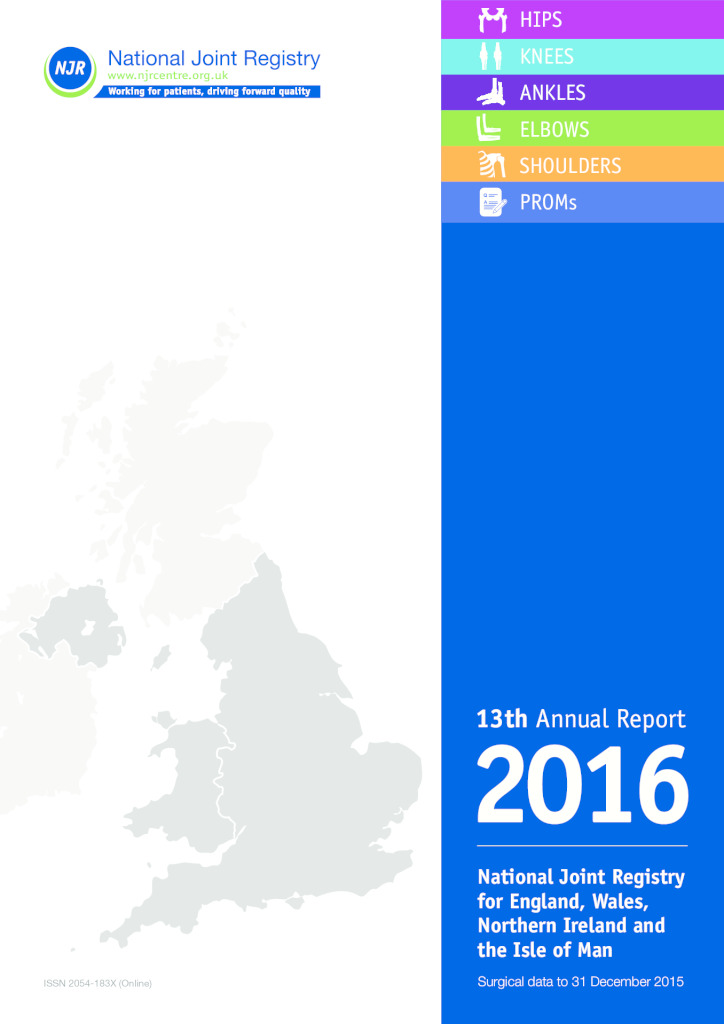National Joint Registry 13th Annual Report 2016
Two million+ records in the National Joint Registry provides a rich dataset for joint replacement surgery
Due to the registry’s rich dataset, important determinants that influence the outcome and longevity of joint replacement procedures can now be studied.
Younger joint replacement patients, who are likely to be more active, may put more strain on their implants and increase the risk of revision, the NJR’s 13th Annual Report found.
This year’s report finds that revision (‘re-do’ surgery) estimates following primary total hip replacement remain low. The impressive results underpin the enormous success and reliability of this operation. However, the report also highlights that patient factors have a significant bearing on how long the implant will last, with younger patients having an increased risk of revision than their older counterparts. Revision estimates are much higher in patients under-55 compared to patients over-75 years of age which could be attributed to patient activity.
Download the NJR 13th Annual Report.
Commenting on the results of the report, NJR medical director, Mr Martyn Porter said: “These sort of results should drive confidence to the public and commissioners of healthcare that hip and knee replacement procedures are one of the most effective and cost effective interventions that the NHS has to offer.
“However, it is important to note that the patient has an important effect on how long a hip replacement will last. Younger patients should not be denied life changing surgery but they need to be advised that revision may be two or three times more likely at ten years compared to less active patients.”
For further comment and analysis from Mr Porter, read his full NHS England guest blog here.
Or find out more at the NJR’s dedicated report website at www.njrreports.org.uk.


